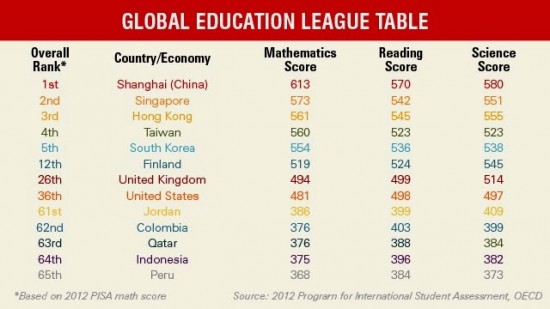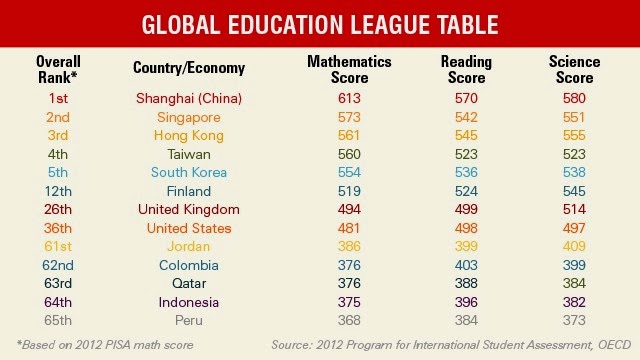German automotive industry at a crossroads
Kategoria: Business

This Great Graphic was posted on CNN by Sophia Brown. It shows the results of last year’s test, conducted by the OECD. Its initiative, the Program for International Student Assessment (PISA) tests more than 500,000 students (aged 15-16) from 65 countries (representing about 80% of the world’s GDP) every three years.
Asian countries accounted for the top five best overall performers in the three subjects tested (math, reading and science) and held seven of the top top positions. Students in Shanghai came in on top as they did in 2009. The math score of 613 points, for example, is the equivalent of almost 3 extra years of schooling above the average for the 34 OECD members (494).
US students were in 36th place. The math score (481) was below the OECD average and the scores in reading and science were in line with the average. Even though the US population is far from the homogeneity seen in many of the Asian countries, there is no excuse.
Yet as Orson Welles quipped, „if you want a happy ending, that depends, of course, on where you stop your story”. As it turns out, the US with poor public primary and secondary schools has world class universities.
There are many comparisons of the world’s universities. Among the most popular is the QS World University Rankings. More than 2000 institutions are considered and more than 700 evaluated. US-based universities hold 10 of the top fifteen positions. UK-based institutions hold 4 of top 15, with Switzerland’s Federal Institute of Technology (in 12th place) completing the list.
Of course, strong universities do not negate the embarrassingly poor education of younger students. However, a more comprehensive comparison of US education would not limit itself to primary and secondary school. At the same time, the divergence of the two is likely both cause and effect of the disparity of wealth in America.



